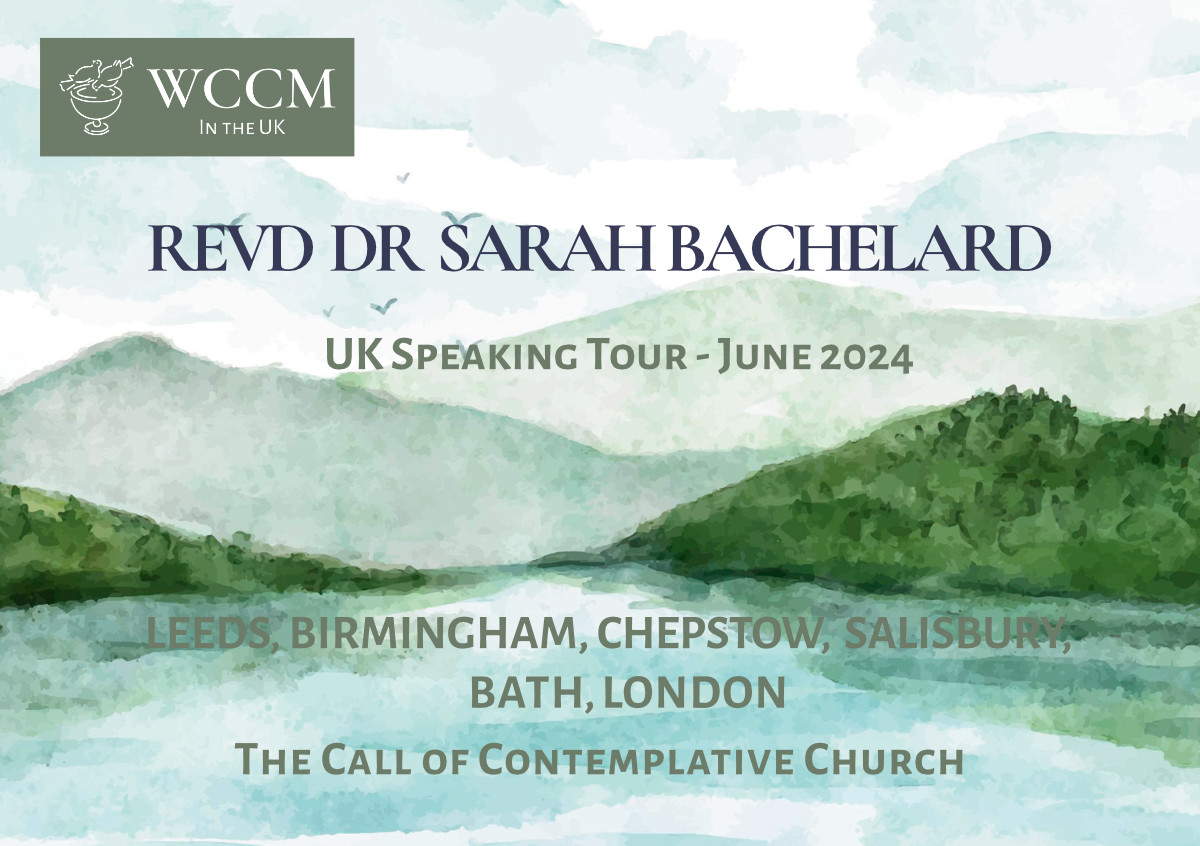UPDATE: The complete Tour Talks are now available on the free WCCM Vimeo Channel and the Pools of Grace recordings are available on the WCCM+ subscription channel:
Rev Sarah Bachelard’s Tour talks were recorded at Leeds Minster by Rev Paul Marbury and are available on the Minster’s You Tube live feed.
- Soul in the System – https://youtu.be/Ni5_sk1_5vo?t=851
- Poetry, Contemplation and the G-word – https://www.youtube.com/JHDsV80zq2c
The poems used (these are external links):
Sarah’s introduction to the talks:
Soul in the System:
Meditation or mindfulness practice is often promoted as a way of helping us cope better with the demands of daily life. Meditation is said to build resilience and reduce anxiety, and so it does. But at what point does ‘coping’ become ‘colluding’? If we’re asked to work in unjust systems, or to live in an inhuman way, should we be learning to adapt ourselves to such demands? This talk explores the notion of ‘mysticism as resistance’ and asks how contemplative practice and community might empower souls to transform, and not simply survive, the system.
Poetry, Contemplation and the G-word:
Many people today seek spiritual wisdom and strength to navigate the challenges of our world. Yet for many, the word ‘God’ feels difficult to say; the reality it points to seems doubtful at best. Do we really need it? Can we go on, spiritually speaking, without it? Drawing on the wisdom of poets, Scripture and contemplation, this talk reflects on the meaning of the G-word and its significance for contemporary experience.
There is still time to book Saturday 15 June at the Meditatio Centre: 10:30-16:00. Shouting, Cancelling, Signalling: Christ and the Anxieties of Speech. £40/£20/ £25 online. Contact: kate@wccm.org
Shouting, Cancelling, Signalling: Christ and the Anxieties of Speech.
The possibility of dialogue, questioning and honest disagreement seems often unattainable, so sensitised are we to certain verbal cues and so charged is our political atmosphere.
Can the Christ who broke down the ‘dividing wall’ between Jew and Gentile redeem our (un)civil discourse? How might
contemplative practice make possible different forms of exchange and allow us to inhabit our words anew?
